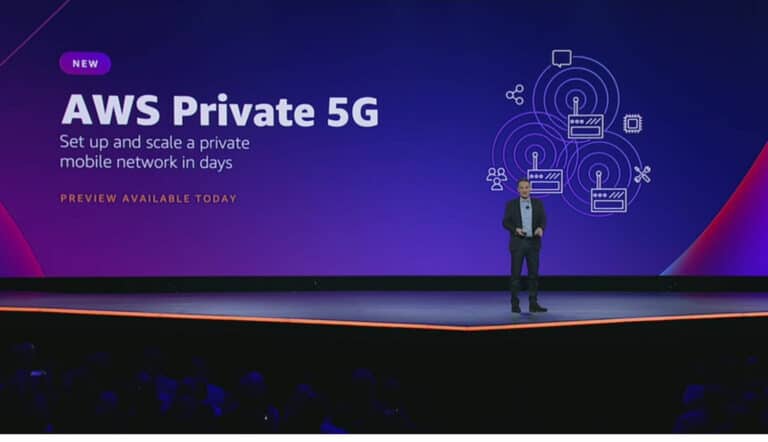During AWS Re:Invent, Amazon Web Services opened the competition with telecom providers. AWS introduced a new service called AWS Private 5G. This allows companies to set up their own private 5G network on their industrial complex or campus.
More and more companies need connectivity in places where it was previously unnecessary. In factories, there are many machines that were never actually connected but simply did their work. It is now clear that by adding connectivity to machines and the factory, shop or office floor, many machines and processes can be made a lot smarter. This makes it possible to better analyse these processes and to find optimisations or, for example, to prevent breakdowns so that production does not come to a halt.
Tip: Read more about AWS:ReInvent 2021
Companies have been working on this for several years. Some companies have built complete fixed networks to connect all machines and applications. Others have opted for a WiFi network that allows anything and everything to connect. According to AWS, installing fixed networks is an expensive and time-consuming investment, and WiFi also has its own disadvantages, such as limited capacity per access point and coverage problems. According to AWS, 5G is the perfect answer. 5G networks can handle an enormous number of devices simultaneously and the range can be expanded very easily.
The theory sounds good, but if it is really as good and affordable as AWS claims during the presentation, we will have to see. In any case, AWS claims it is simple and affordable. For example, a company can indicate how many devices it wants to connect to the 5G network, where the network should be located, how large the area is that needs to be covered and how much bandwidth it needs. For this, the company pays AWS a fixed amount per month, there are no upfront costs. AWS then delivers the equipment ready to go, it only needs to be plugged in. It comes with small cell radio units, servers 5G core network and the RAN software (Radio Access Network). It also delivers a bag with SIM cards to supply all devices and machines. The private 5G network can be managed and configured in the AWS web console.
During the presentation, AWS also mentioned that this private 5G implementation can be rolled out without the need for a permit. If this will also be the case for Europe is not clear yet, the solution is only available in the United States as a preview at this moment.
Competition for telecom providers
Many telecom providers will not be happy with this new solution. After all, with the introduction of 5G, they can make so-called slices of their network, in which they can divide their network into independent parts. With this, telecom providers can offer private 5G over their existing networks. In theory, they can do this nationwide or within an entire city. With the introduction of AWS Private 5G, they will in any case face competition from AWS on business parks and campuses.
Whether this competition will have a negative impact on AWS remains to be seen. AWS is also trying to convince telecom providers to run part of their networks in the cloud. The AWS Cloud is suitable for this, but also those of Microsoft, Google and Oracle. It could be a reason for telecom providers to choose one of the other clouds and not AWS.
